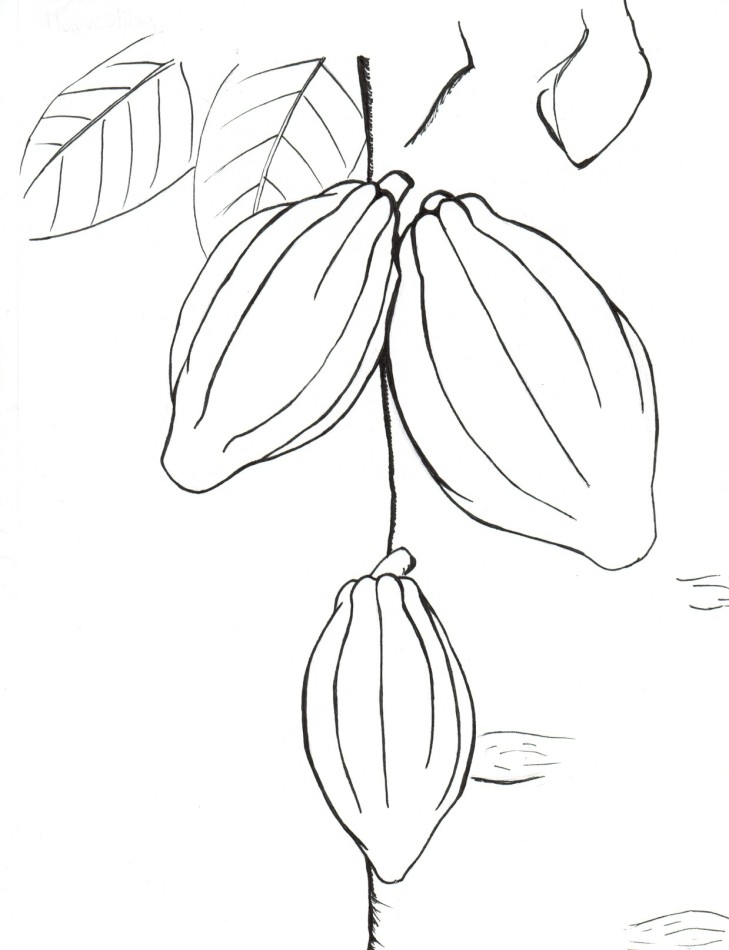Cacao-based Agroforestry Handbook
Now in its 3rd year, the Belize Cacao-based Agroforestry Project (BCARP) is on the path to broadening its reach by producing an illustrated guidebook to be distributed around the country. The BCARP seeks to expand habitat for over-wintering neotropical migratory birds and other wildlife by converting environments such as farmland and secondary growth forest to wildlife-friendly agroforests with cacao as the dominant understory.
To date, this BFREE project has helped farmers in the nearby agricultural community of Trio Village to plant over 20,000 trees. Support has been offered in the form of training, labor, materials, and extension services. From the very beginnings of the project, interest in cacao and organic farming far surpassed BFREE’s expectations, in spite of the great desire to continue to expand by adding more farmers to the project, it also exceeded the financial and human resources dedicated to the project.
Always up for a challenge, BFREE decided a handbook illustrating specific methods could be one valuable component of a larger effort to address the ever-growing interest in cacao. Working with Dr. Jamie Rotenberg, BFREE board member and professor, BFREE engaged students at the University of North Carolina, Wilmington to help with the development and design of the handbook.
Nine graduate students in Dr. Rotenberg’s class, EVS: 530 “Graduate Tropical Environmental Ecology,” embraced the opportunity to produce something lasting and useful to farmers. Over the fall semester, the team worked to vet and compile resources for the handbook content. The clear priority was to design a guide specific to Belize that was thorough and complete yet simple to understand and illustration-based rather than text-heavy to account for varying levels of literacy and language.

The handbook will be filled with simple and clear illustrations to supplement and enhance written material.
In December, the team presented their final products to BFREE. Both students and staff were thrilled with the results; the handbook was attractive, comprehensive, clear, and included both English and Spanish translations. Unanimously, the group agreed the handbook was a great beginning and the next step was fine tuning.
Elmer Tzalam, BFREE Cacao Farm Manager, and Gentry Mander, recent University of Florida graduate and long-time BFREE collaborator, along with other BFREE staff, edited the handbook content and compiled recommendations for a final version. Those edits were given to some of the former EVS:530 students – Sara Marriott, Katherine Weeks, Danielle Frank, and Carmen Johnson – who eagerly accepted the opportunity to work with BFREE to complete the project. We anticipate publication of the handbook this autumn, and distribution in Belize immediately following.
We are most grateful to Dr. Jamie Rotenberg and his students: Karissa Bearer, Johanna Colburn, Lindsey Cole, Danielle Frank, Evan Gruetter, Carmen Johnson, Bretton Little, Sara Marriott, and Katherine Weeks. Their investment of time, energy, ideas and enthusiasm helped to spur on this meaningful project.
Partial funding for BCARP is provided by the U.S Fish and Wildlife Service, along with co-trustees from the State of Massachusetts and the National Oceanic and Atmospheric Administration.


Leave a Reply
Want to join the discussion?Feel free to contribute!